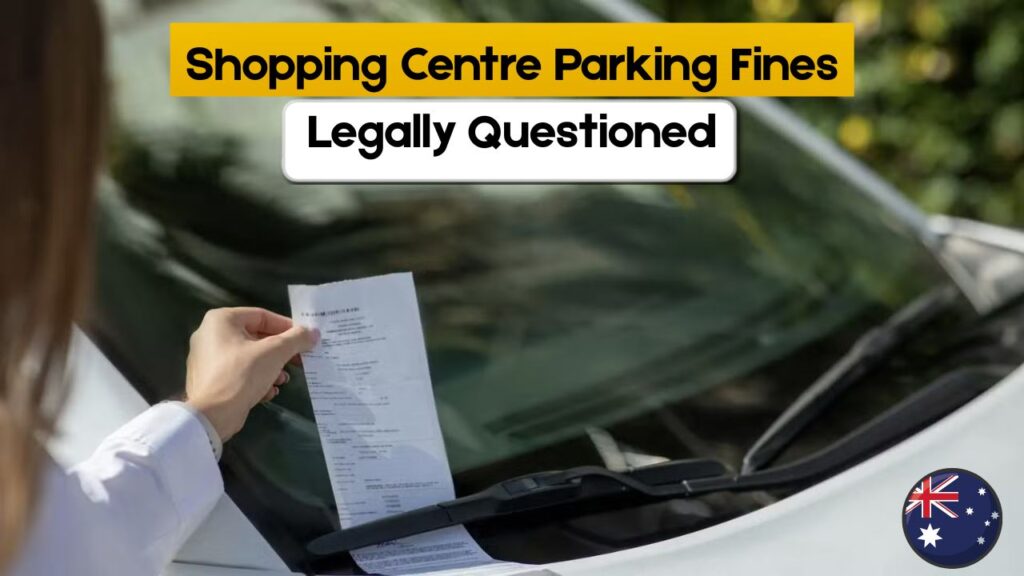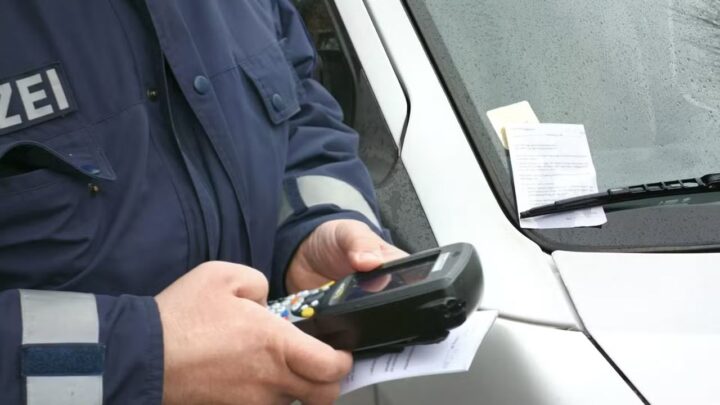Shopping centre car park fines are a hot topic in Australia, with many drivers questioning whether these fines are actually enforceable or just scare tactics. Unlike council-issued or police-enforced tickets, fines from private parking operators often spark legal confusion. These fines usually arrive in the mail after a visit to a shopping centre, warning of hefty charges for overstaying the marked time. But are you really required to pay? In this article, we break down the legal status of these fines, explain how private car park enforcement works, and outline what your rights are as an Australian driver.

Understanding How Private Car Park Fines Work in Australia
Private parking fines issued in shopping centres operate differently from government-issued penalties. These are typically issued by private companies hired by shopping centres to monitor and enforce parking rules. When a vehicle overstays the permitted time or parks incorrectly, a fine is generated and sent to the vehicle’s registered owner. However, these fines are not technically “fines” in a legal sense — they are contractual penalty notices. That means by entering the car park, you’re agreeing to the terms and conditions posted at the entrance. The enforceability of these penalties depends on whether the terms were clearly displayed and whether the driver was reasonably aware of them.
Are Shopping Centre Parking Fines Legally Enforceable?
This is where things get tricky. In most Australian states, these fines are not enforceable unless the company takes you to court and wins. While the Australian Consumer Law protects individuals from unfair contracts, parking companies argue that signage makes the agreement valid. Legal experts say that unless a court finds the fine to be reasonable and enforceable under contract law, there’s no automatic obligation to pay. However, ignoring multiple notices may lead to debt collection threats, even if enforcement is unlikely. Ultimately, whether you should pay depends on the specific circumstances, such as signage visibility, clarity of terms, and whether you were actually the driver.

What Can Happen If You Ignore These Fines?
Many Australians choose to ignore private parking notices, assuming they have no legal weight. While this might work in some cases, it can also backfire. Parking companies may escalate the matter by using third-party debt collectors, which can impact your credit score if not handled carefully. Though few cases go to court, those that do often rely on clear photographic evidence and properly displayed signage. It’s important to keep records, including photographs of the signage or car park conditions, in case you wish to dispute the fine. Understanding the difference between a legally binding fine and a non-enforceable invoice is crucial in deciding your next move.
How to Handle a Private Car Park Fine the Smart Way
If you receive a fine from a shopping centre car park, don’t panic — but don’t toss it in the bin either. Start by reviewing the signage terms and checking if your vehicle actually breached the stated time limit. If the signage was unclear or the charge seems excessive, you may have grounds to dispute it. You can write to the parking company requesting more details or evidence. In some cases, shopping centres are willing to waive fines if you were a genuine customer. Be polite, keep written records, and don’t ignore formal court notices. Knowing your legal rights as a driver can help you avoid unnecessary trouble or costs.
| Aspect | Details |
|---|---|
| Issuer Type | Private Parking Companies |
| Legal Status | Not fines, but contract claims |
| Enforceable by Law? | Only through civil court action |
| Risk of Ignoring | Debt collection, credit risk |
| Recommended Action | Check signage, seek legal advice |
| Dispute Options | Direct appeal, Ombudsman, or legal defence |
FAQ: Are car park fines enforceable?
Only if the company sues and wins in court.
FAQ: Should I pay a private parking fine?
Only after reviewing the signage and legal basis.
FAQ: Can unpaid fines affect my credit score?
They might if passed to debt collectors.
FAQ: Can shopping centres waive these fines?
Yes, some do for genuine customers.






